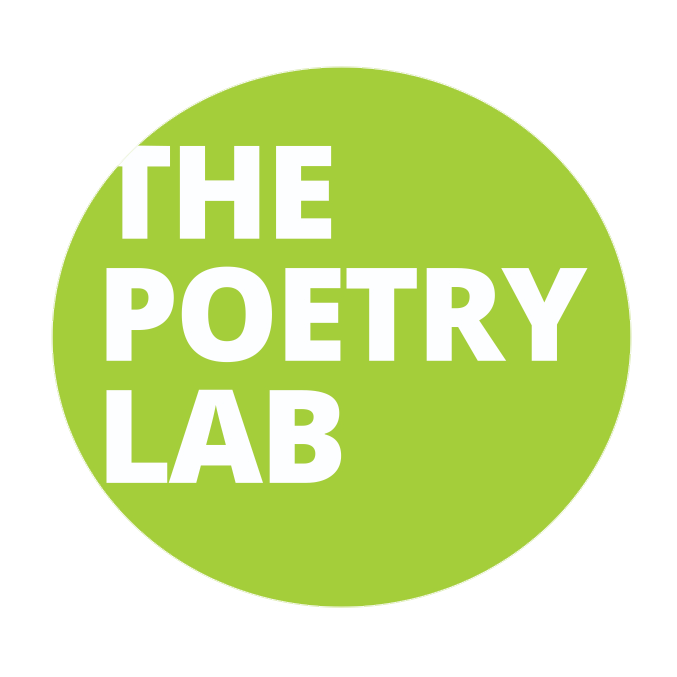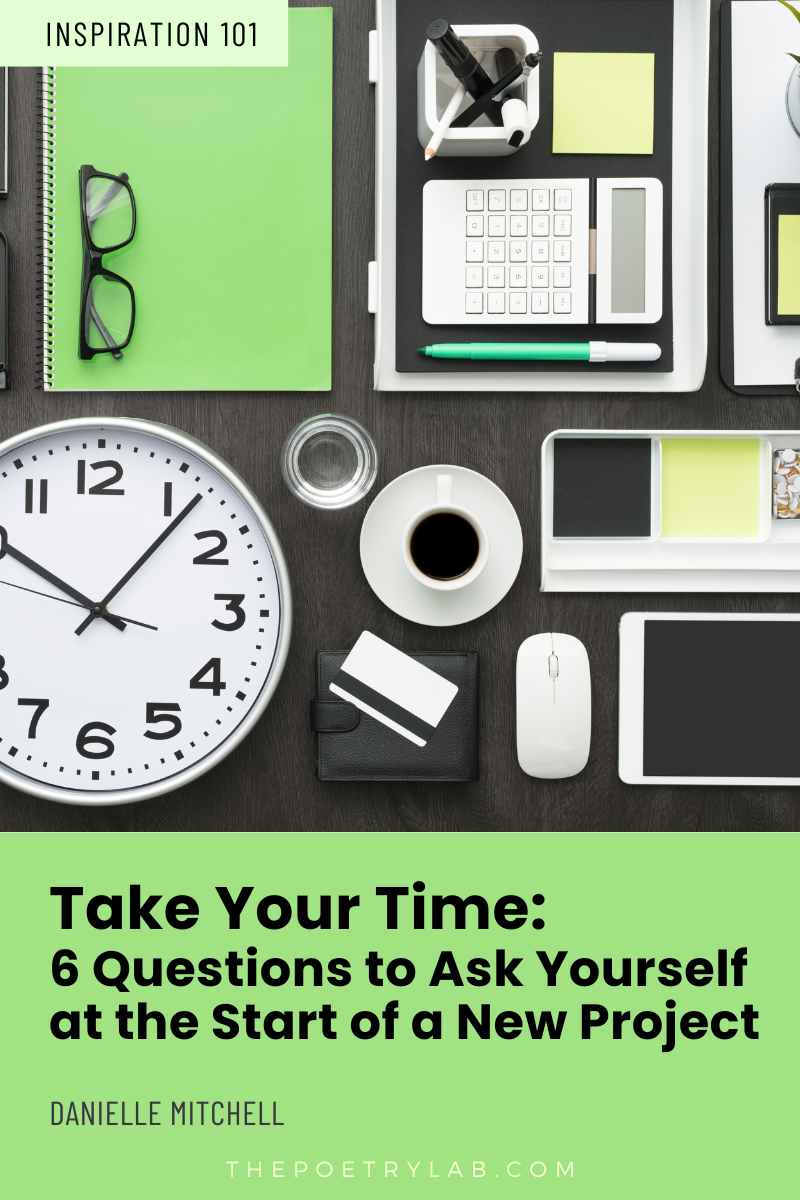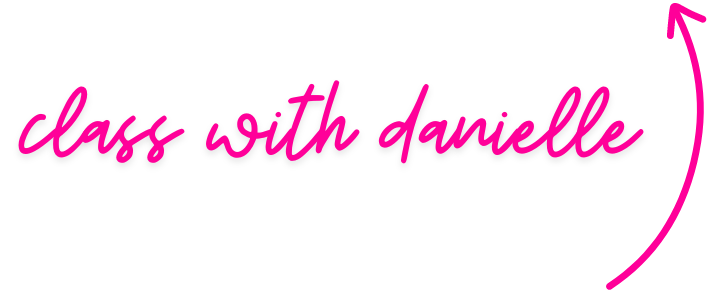Take Your Time: 6 Questions to Ask Yourself at the Start of a New Project
There’s nothing I like more than starting something new. The beginning of a project is invigorating. My ideas still hold all their secret allure. I get to explore, to experiment, to find out about myself, my collaborators, and the lifespan of that new something as it takes shape in the world.
As a poet, the experience of a new thing almost always brings along with it generative energy. Did you not write a poem when as an adult you first experienced the ocean? Snowfall? A volcano? The Santa Ana winds?
That new thing bringing its good *new thing energy* doesn’t even have to be something new I’m creating in order to be life-affirming and exciting to me. But I will say this: I love starting things. Probably more than I like the long, slow, burn of building them or seeing them through to the end.
What I don’t like is combining the zap of excitement over something new and the long, thorough process of building into one experience. It’s deliberate decision-making that’s my weakness. Which is why I am so intrigued by books like Time and How You Spend It by James Wallman, The Gap and the Gain by Benjamin Hardy and Dan Sullivan, and Organizing Your Creative Career by Sheila Chandra.
At the risk of endorsing a useless binary, I do find it interesting as a dreamer to see what the schemers amongst us are up to.
Recently, I read an interview with Sue Nabi, CEO of the multibillion-dollar beauty company Coty, where she reflected on six crucial questions to ask yourself at the start of a new project. Here are the questions, and how you might use them to analyze your next big idea:
1) Does it have the potential to tell a story?
Sue Nabi emphasizes the importance of storytelling in her work. She believes every project you undertake should have a narrative—something that connects it to your personal journey, your values, or the wider world.
As poets and writers this almost seems too obvious. But the power of storytelling through a project can be powerful when it aligns with your goals and vision. For example, at AWP22, The Poetry Lab collaborated on the panel “Workshops for the Working Class.” That project took a lot of time and energy to complete, but it also told a very important part of our story as an organization and it was affirming to see how well-received our story was with the larger literary community.
Ask Yourself:
What story does this project tell?
How does this project connect to my personal journey or values?
In what way can this project make a difference or leave a lasting impression?
2) Will it change me or help me grow?
Personal growth is a significant marker of a project's worth, but I find this question challenging because sometimes we can’t predict how we’ll change or grow over the course of a project.
Maybe it bodes well if you know changes are inevitable with the tasks you’re undertaking. But don’t be afraid to check in with yourself along the way. I love journaling. My therapist says I’m pretty good at processing my emotions through written words—go figure!
If a project has the potential to change you for the better, it's worth pursuing.
Ask Yourself:
Will this challenge me?
What new skills or knowledge will I gain from this project?
How will this project push me out of my comfort zone?
Have I given myself permission to embrace this change?
3) Can it help me unplug and reconnect?
In an era where technology often dominates our lives, projects that offer a chance to disconnect from the digital world and reconnect with ourselves or nature are invaluable.
For example, I love to paint ceramic Christmas villages. I know this sounds silly, and mostly it is, but I’m very passionate about the project because I love the medium of paint and the physicality of the 3D object. I like the chalky texture of the plastercraft. I like making decisions about the color scheme and the trim details of Santa’s workshop or the village library. This past holiday season, I painted an Airstream trailer and the Eiffel Tower for my Christmas village! Hours go by when I’m painting, sometimes whole days pass and I haven’t checked my phone once. My task is so consuming that setting tech aside is effortless.
Do you have anything in your life like that?
Ask Yourself:
Does this project offer an opportunity to disconnect from technology?
How will this project help me reconnect with myself or nature?
Can this project provide a balance to my digital life?
4) Will it enhance my relationships?
Consider whether the project will allow you to improve existing relationships or forge new ones. Projects that encourage collaboration, empathy, and understanding can have lasting benefits on both personal and professional relationships.
As an introvert this is the hardest question for me. Not because it’s difficult to answer, but because typically I shy away from situations where I have to socially leverage myself in order to achieve my goal. I’d really rather stay inside my apartment where the energy is cultivated, the lighting is slow, and the pink noise softly humming.
Whenever a project calls on me to go out into the world and mingle, talk to strangers, or speak in front of a crowd, I remind myself of the words of the great Gloria Steinem: “Sometimes we must put our body where our beliefs are.”
Ask Yourself:
Will this project allow me to work collaboratively with others?
How can this project improve my existing relationships?
Is there potential to meet new people or forge new connections through this project?
5) Is it challenging yet achievable?
The right project should stretch your abilities without overwhelming you. It’s essential to find a balance where the project is challenging enough to keep you engaged and motivated, but not so difficult that it becomes discouraging. This balance can foster a sense of satisfaction.
The last time I felt that stretch was when we started The Poetry Lab Podcast. It was a journey that ventured much further into vulnerability than I expected it to and there were a lot of research, team discussions, and action items to tackle before we could hit “publish.” It was worth it. We got the project up and running, have been able to reach new community members through the platform, and are hard at work on new episodes coming soon!
My one piece of advice on this question is don’t be afraid to let it take time. We spent 9 months preparing for the launch of the podcast. And the idea spent a full year living in my mind before that. Don’t be daunted when something you’re working on needs to go full-term.
Ask Yourself:
Does the project strike a balance between being challenging and achievable?
What obstacles might I face, and how can I overcome them?
How will I remain motivated and engaged throughout the project?
6) Does it inspire awe or make me feel a sense of wonder?
This is by far my favorite question! Projects that make you feel a sense of awe or wonder can be incredibly fulfilling. These feelings often arise from projects that allow us to explore new concepts, discover new places, or create something truly unique.
If a project makes you excited and inspired, it's a sign that it's worth your time and energy. Trust your instincts! Maybe try some emotional compass reading or pull Tarot cards to help affirm your feelings on a new project.
I’m classic for questioning a good thing—I get the “it’s too good to be true” blues. But that’s because I was raised with the scarcity mindset that this capitalist hellscape has attempted to instill in all of us!
What if we defaulted to abundance? What if we believed that we already know exactly what we want to do, we just have to give ourselves the permission to enjoy doing it?!
Ask Yourself:
What about this project lights me up?
How does this project make me feel a sense of wonder?
Who would I be if I took on this project with enthusiasm and awe?
***
Over the past few years I’ve noticed that the more creative projects I take on, the more new projects come my way. But that’s how it is, isn’t it? The more you do, the more you do do. Still, having a process in place to evaluate whether a new thing is right for you isn’t a bad idea.
Sometimes we are so honored by the invitation to participate that we start to think we have to say yes to everything. It’s ok to go slow sometimes. And it’s ok to say no sometimes too.
Before diving headfirst into your next project, take a moment to reflect on these questions. Remember what Sue Nabi said at the end of her interview: “What takes time is respected by time." Let this be a guiding principle in your approach to new projects.
Good luck, poet. You got this.
This article was published on March 25, 2024. Written by:




